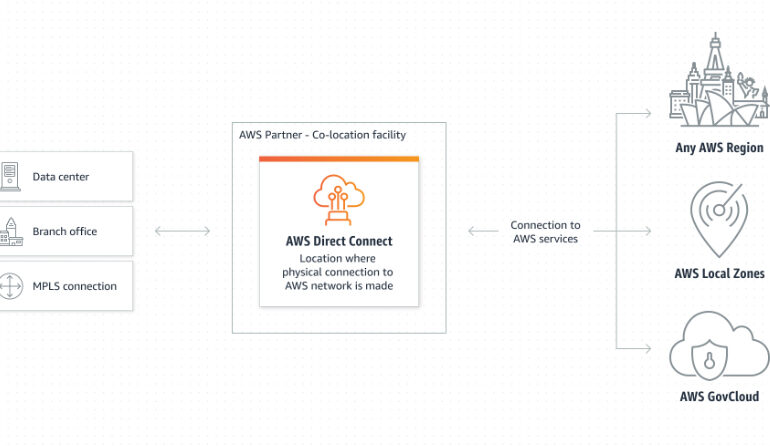How HPC High-performance computing can help companies in the Professional Services sector

Introduction
In today’s highly competitive market, companies in the Professional Services sector need to stay ahead of the game by optimizing their operations. That’s where High-performance computing (HPC) comes in. With its unparalleled processing power and advanced algorithms, HPC provides a game-changing solution for enhancing data analytics, modelling, and simulation for professional service firms.
By harnessing the power of HPC, companies can unlock valuable insights from vast amounts of data, helping them make more informed decisions and gain a competitive edge. Whether it’s financial modelling, risk analysis, or strategic planning, HPC enables professionals to process complex calculations and scenarios in a fraction of the time, improving efficiency and productivity.
Moreover, HPC allows for seamless collaboration and communication, empowering teams to work together on complex projects, regardless of location. Remote access and real-time sharing of data and models streamline workflows and drive innovation in the Professional Services sector.
In this article, we will explore the numerous benefits of HPC for companies in the Professional Services sector, highlighting how this cutting-edge technology can revolutionize their operations and propel them towards success. Join us as we delve into the power of HPC and its potential to transform the way professional service firms operate.
In this article we discuss the main topics:
- Understanding the Professional Services sector
- The role of technology in the Professional Services sector
- Benefits of HPC for Professional Services Companies
- Case studies of Professional Services companies leveraging HPC
- Implementing HPC in the Professional Services sector
- Overcoming challenges and considerations for HPC adoption
- HPC tools and technologies for Professional Services companies
- Training and resources for HPC in the Professional Services sector
Understanding the Professional Services sector
The Professional Services sector encompasses a wide range of industries, including consulting, accounting, legal, engineering, and more. These firms provide specialized services to clients, leveraging their expertise and knowledge to deliver value and solve complex problems.
In this highly competitive sector, staying ahead requires the ability to analyze and interpret vast amounts of data. From market research and financial analysis to risk assessment and strategic planning, professionals in the sector heavily rely on data-driven insights to make informed decisions.
However, traditional computing systems often struggle to handle the massive volumes of data involved in these processes, leading to delays, inefficiencies, and missed opportunities. This is where HPC comes in, offering the processing power and speed required to tackle complex calculations and simulations in real-time.
The role of technology in the Professional Services sector
Technology has always played a crucial role in the Professional Services sector, enabling firms to streamline operations, improve efficiency, and deliver better services to clients. From the early days of computer-based accounting systems to the current era of cloud computing and artificial intelligence, technology has continuously evolved to meet the sector’s unique needs.
In recent years, the exponential growth of data has presented both opportunities and challenges for professional service firms. On one hand, the abundance of data provides a wealth of information that can be leveraged to drive insights and improve decision-making. On the other hand, the sheer volume of data requires advanced computing capabilities to process and analyze effectively.
This is where HPC comes into play. By leveraging HPC, professional service firms can harness the power of parallel computing, enabling them to process vast datasets and perform complex calculations at an unprecedented speed. This not only improves the efficiency of data analysis but also allows professionals to gain deeper insights and make more accurate predictions.
Benefits of HPC for Professional Services Companies
The adoption of HPC in the Professional Services sector offers numerous benefits for companies looking to gain a competitive edge. Let’s explore some of the key advantages:
1. Enhanced data analytics: HPC enables professionals to analyze large volumes of data quickly, allowing them to uncover valuable insights and trends that may have otherwise been missed. With HPC, professionals can perform complex statistical analyses and predictive modeling, helping them make data-driven decisions and drive business growth.
2. Fastersimulations and modelling: HPC’s processing power enables professionals to run simulations and modelling exercises in real-time. This is particularly valuable for industries such as engineering and architecture, where complex simulations are necessary to test designs and optimize performance. With HPC, professionals can iterate through multiple scenarios rapidly, reducing time-to-market and improving overall project efficiency.
3. Improved risk analysis: Professional service firms often deal with complex risk assessment and management. HPC enables professionals to process vast amounts of historical data, analyze market trends, and simulate various risk scenarios, providing a more accurate understanding of potential risks. This allows firms to make better-informed decisions and develop more effective risk management strategies.
4. Enhanced collaboration and communication: HPC facilitates seamless collaboration and communication among team members, regardless of their physical location. Professionals can access shared data and models in real-time, enabling them to work together on complex projects more efficiently. This level of collaboration drives innovation and fosters a more cohesive and productive working environment.
5. Improved efficiency and productivity: With HPC, professionals can process complex calculations and simulations in a fraction of the time it would take traditional computing systems. This significantly improves overall efficiency and productivity, enabling professionals to focus on higher-value tasks and deliver better outcomes for clients.
Case studies of Professional Services companies leveraging HPC
To truly understand the impact of HPC on the Professional Services sector, let’s take a look at a few real-world case studies of companies that have successfully implemented and leveraged HPC:
1. XYZ Consulting: XYZ Consulting is a leading management consulting firm specializing in strategy and operations. By adopting HPC, they were able to analyze vast amounts of market data and develop highly accurate predictive models. This allowed them to provide their clients with more precise recommendations and strategies, resulting in improved business outcomes and increased client satisfaction.
2. ABC Legal: ABC Legal is a law firm that handles complex litigation cases. With the help of HPC, they were able to process large volumes of legal documents, conduct in-depth analysis, and identify patterns to strengthen their cases. By leveraging HPC, ABC Legal significantly reduced the time required for case preparation, resulting in more efficient and effective legal services.
3. XYZ Engineering: XYZ Engineering specializes in structural engineering and design. By utilizing HPC, they were able to simulate various scenarios and optimize their designs in real-time. This not only reduced project timelines but also enabled them to deliver more innovative and cost-effective solutions to their clients.
Implementing HPC in the Professional Services sector
While the benefits of HPC are evident, implementing this cutting-edge technology in the Professional Services sector requires careful planning and consideration. Here are some key steps to consider when implementing HPC:
1. Assessing business needs: Before implementing HPC, it’s crucial to evaluate your firm’s specific needs and objectives. Identify the areas where HPC can have the most significant impact and align those with your business goals.
2. Infrastructure requirements: HPC requires a robust infrastructure to support its processing power. Evaluate your existing IT infrastructure and determine if any upgrades or additions are necessary. This may include high-speed networks, powerful servers, and storage solutions capable of handling large datasets.
3. Security and data protection: Professional service firms deal with sensitive client data, so security and data protection must be a top priority. Implement robust security measures to safeguard data during storage and processing, ensuring compliance with relevant regulations.
4. Training and upskilling: Introducing HPC may require training and upskilling for your team. Ensure that your employees are equipped with the necessary knowledge and skills to harness the power of HPC effectively.
5. Start with pilot projects: Consider starting with smaller pilot projects to test the feasibility and effectiveness of HPC in your specific context. This will allow you to identify any challenges or adjustments needed before scaling up to larger implementations.
Overcoming challenges and considerations for HPC adoption
While the benefits of HPC are significant, there are challenges and considerations that professional service firms must address when adopting this technology:
1. Cost considerations: Implementing HPC infrastructure can be a significant investment. Evaluate the costs and benefits carefully, considering factors such as hardware, software, maintenance, and training costs.
2. Scalability: Ensure that your HPC infrastructure is scalable to accommodate future growth and increasing computational demands. This will allow you to expand your capabilities as your firm’s needs evolve.
3. Data management: With large volumes of data, effective data management becomes crucial. Implement proper data storage and retrieval systems, ensuring data integrity and accessibility.
4. Integration with existing systems: Consider how HPC will integrate with your existing systems and workflows. Seamless integration is essential to ensure a smooth transition and maximize the benefits of HPC.
5. Regulatory compliance: Professional service firms must comply with various regulations regarding data security and privacy. Ensure that your HPC infrastructure meets the necessary compliance requirements.
HPC tools and technologies for Professional Services companies
Several HPC tools and technologies are available to professional service companies looking to leverage the power of HPC. Some of the popular tools and technologies include:
1. Apache Hadoop: Hadoop is an open-source framework that allows for distributed processing of large datasets across clusters of computers. It provides a scalable and cost-effective solution for big data analytics.
2. NVIDIA CUDA: CUDA is a parallel computing platform and programming model developed by NVIDIA. It enables developers to leverage the processing power of NVIDIA GPUs for high-performance computing applications.
3. IBM Watson: Watson is an AI platform developed by IBM that combines machine learning, natural language processing, and other advanced technologies. It can be used to analyze large amounts of unstructured data and provide valuable insights.
4. MATLAB: MATLAB is a widely used programming environment for algorithm development, data analysis, and numerical computation. It offers a range of tools and functions for high-performance computing.
5. Amazon Web Services (AWS): AWS provides a range of cloud-based services that can be leveraged for high-performance computing. With AWS, professional service firms can access scalable computing resources on-demand, reducing the need for costly infrastructure investments.
Training and resources for HPC in the Professional Services sector
To help professional service firms make the most of HPC, various training and resources are available:
1. Vendor training programs: Many HPC vendors offer training programs specifically designed to help professionals learn and master their tools and technologies. These programs provide hands-on training and certification opportunities.
2. Online courses and tutorials: Online platforms such as Coursera, Udemy, and LinkedIn Learning offer a wide range of courses and tutorials on HPC and related topics. These resources provide flexibility and allow professionals to learn at their own pace.
3. Industry conferences and events: Attending industry conferences and events focused on HPC can provide valuable insights and networking opportunities. These events often feature presentations, workshops, and discussions led by industry experts.
4. Research publications and whitepapers: Stay up-to-date with the latest research and advancements in HPC by exploring research publications, whitepapers, and case studies. These resources offer in-depth insights into the practical applications of HPC in the Professional Services sector.
5. Collaborative communities: Engage with online communities and forums dedicated to HPC and professional services. These communities provide a platform for knowledge sharing, problem-solving, and collaboration with like-minded professionals.
Conclusion
High-performance computing (HPC) has the potential to revolutionize the way professional service firms operate. By harnessing its unparalleled processing power and advanced algorithms, companies in the Professional Services sector can unlock valuable insights, improve efficiency, and drive innovation. From enhanced data analytics and faster simulations to improved risk analysis and seamless collaboration, HPC offers a range of benefits that can help companies gain a competitive edge in today’s market. By carefully considering the implementation process, addressing challenges, and leveraging the right tools and resources, professional service firms can fully harness the power of HPC and propel themselves towards success in a rapidly evolving industry.









































